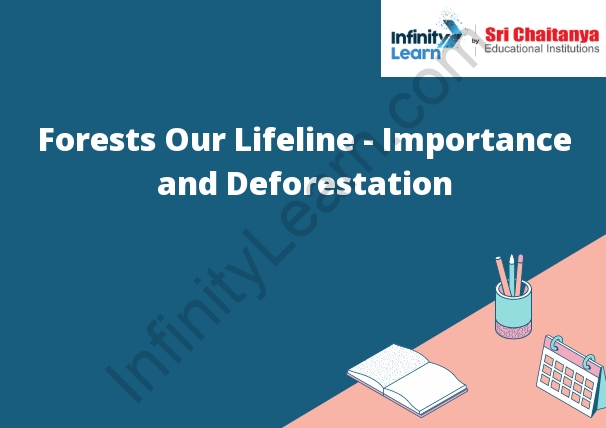Table of Contents
What is a Forest?
A forest is a large area of land covered with trees and other plants. Forests can be found all over the world, in different climates and environments.

Importance of Forests
Forests are one of the most important natural resources on Earth. They are a vital part of the environment and play a key role in the global economy.
Forests are home to a diverse array of plants and animals. They provide food, shelter, and other resources for people and animals. Forests also play a critical role in the environment by regulating the climate, cleaning the air and water, and protecting soil.
Forests are an important part of the global economy. They provide jobs and economic opportunities for people in rural areas. Forests also produce valuable resources such as timber, paper, and other forest products.
What is Deforestation?
Deforestation is the conversion of a forested area to land that is not forested. Deforestation can occur naturally (such as a forest fire) or be the result of human activities (such as logging or agriculture).
Causes of Deforestation
The most common causes of deforestation are agricultural expansion, wood extraction, logging, forest fires, and development.
Deforestation is the conversion of a forested area to land that is not forested. Deforestation can occur naturally (such as a fire burning down a forest) or be the result of human activities (such as when trees are cleared to make room for crops or buildings).
Agricultural Expansion: The clearing of forests to make way for farmland is a major cause of deforestation. As the world’s population continues to grow, the demand for food increases, which leads to more deforestation.
Wood Extraction: The harvesting of timber for wood products is another major cause of deforestation. Forests are cleared to make room for logging operations, and the wood that is harvested is used for lumber, paper, and other products.
Logging: Logging is the process of cutting down trees for wood products. Logging operations can clear large areas of forest, and the trees that are cut down are often not used for lumber or other wood products. Instead, the wood is burned, which contributes to deforestation.
Forest Fires: Forest fires can occur naturally or be started by people. A naturally occurring fire can start when a lightning strike ignites the dry underbrush in a forest. A fire that is started by people can be started deliberately or accidentally. Arson, careless campfires, and cigarettes are some of the ways people start fires.
Effects of Deforestation
Deforestation is the clear-cutting of trees in an area where forest once thrived. Deforestation can refer to the natural loss of trees, as well as the potential destruction of forests due to the practices of people.
Deforestation has a number of effects on the environment. The most obvious is the loss of trees, which can have a significant impact on the environment. Trees play a number of important roles in the environment, including reducing erosion, providing shelter and food for animals, and cooling the air.
Deforestation can also have a significant impact on climate. Trees play a role in regulating the climate by absorbing carbon dioxide and releasing oxygen. When trees are removed, the amount of carbon dioxide in the atmosphere increases, which can lead to global warming.
Deforestation can also have an impact on the water cycle. Trees help to regulate the water cycle by absorbing water from the ground and releasing it into the atmosphere. When trees are removed, the ground can become dryer, which can lead to drought.
Deforestation can also have a negative impact on the local economy. When forests are cleared, the people who live in the area often lose their source of income, which can lead to poverty.







